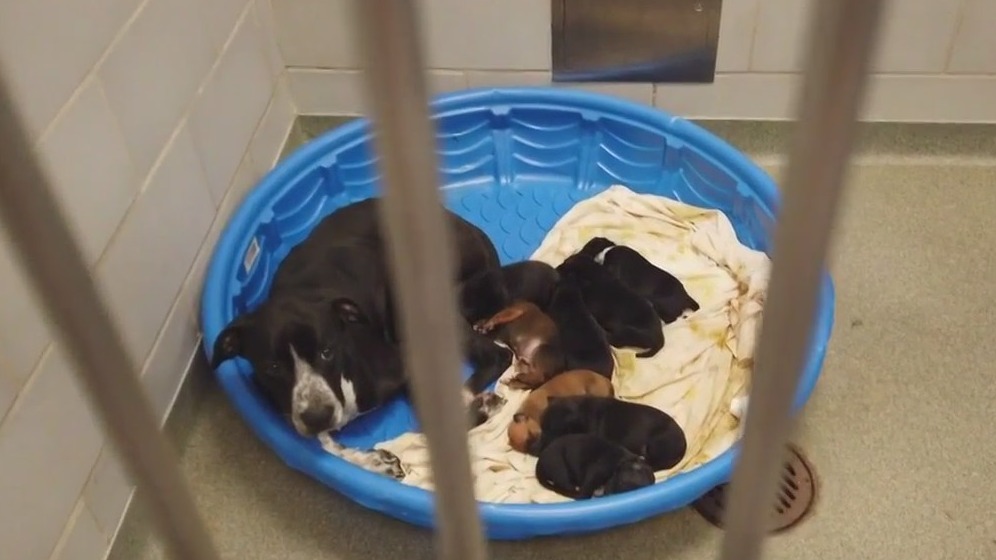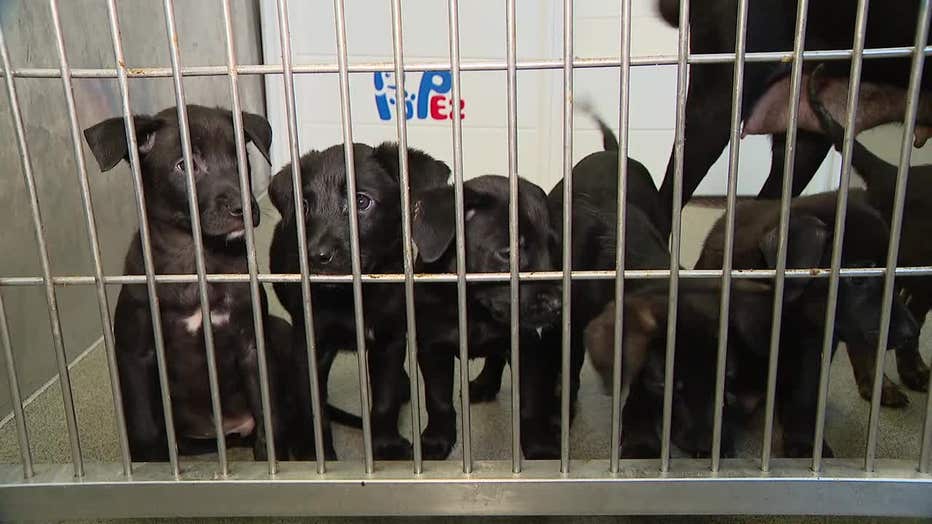Dallas animal shelters experiencing huge influx in puppies

Surge of puppies at Dallas Animals Services
There are likely many factors, but the end of the privately funded Dallas spay-neuter surge program about eight months ago is hard to ignore. Dallas Animal Services is in need of people to adopt the young animals.
DALLAS - Dallas Animal Services and SPCA of Texas are seeing a huge influx of puppies unlike any surge many animal welfare workers have seen.
DAS says there is an urgent need for people to foster the moms with their pups until they reach an adoptable age.
The big question is why is DAS seeing such a huge influx in puppies?
There are likely many factors, but the end of the privately funded Dallas spay-neuter surge program about eight months ago is hard to ignore.
DAS Asst. Director Mary Martin showed litter after litter after litter of puppies.

"We have at least seven that come in every day," she said. "I have been in animal welfare 30 years. I have never seen this many liters of puppies in a shelter ever."
The SPCA of Texas shared images of a similar surge in both puppies and kittens.
Spokeswoman Maura Davies said, "The SPCA of Texas is bursting at the seams with animals, including an influx of puppies and kittens unlike anything we've seen in the past 15 years."
Featured
Dallas Animal Services expects surge in pets in need of shelter. It is already over capacity.
Last year, the shelter saw more than 100 new animals from off the streets on July 4th and 5th.
The reasons are complex.
Davies said, "With a nationwide shortage of veterinarians for much-needed spay and neuter surgeries as well as a funding shortage for spay and neuter surgeries, the number of animals born without homes has alarmingly increased."
Martin says the need to make spay-neuter surgeries not only affordable but accessible is great.
"When we talk about spay and neuter and accessibility, free is sometimes not cheap enough," she said. "If you have to take off work, that is a cost. Or you don't have transportation."
With an average litter size of about 9 to 11 puppies, the numbers quickly add up.
While the puppies will be adopted quickly, they can't be put up for adoption until they are weaned, which takes a minimum of eight weeks.
That timeline means the puppy influx is increasing the need to euthanize adoptable dogs.
"Heartbreaking for everyone. We are having to make decisions for space because of capacity," Martin said. "We are at 137% capacity. It means we have 37% more dogs than we should."
Martin says in addition to knowing you are helping save lives, fostering a mom and her pups is rewarding.
"When the puppies are young, the mom does most of the work. All you have to do is have food and water and take her out," she said. "But she will take care of cleaning and feeding the puppies herself until they are at least 3.5 weeks old."
Campaign to tackle Dallas' loose dog problem comes to an end after 6 years
Martin is fostering a litter herself and using it as an educational opportunity.
"In my case, the neighborhood swim team comes over to help socialize the puppies," she said. "Socialized pups are healthy."
DAS will provide all of the food and supplies needed to foster a litter, and fosters who want to adopt can also choose the pick of the litter with spay-neuter and microchipping.
The SPCA says it is also seeing a rising trend of apartments not allowing large dogs, which is making it more difficult for them to find forever homes.


